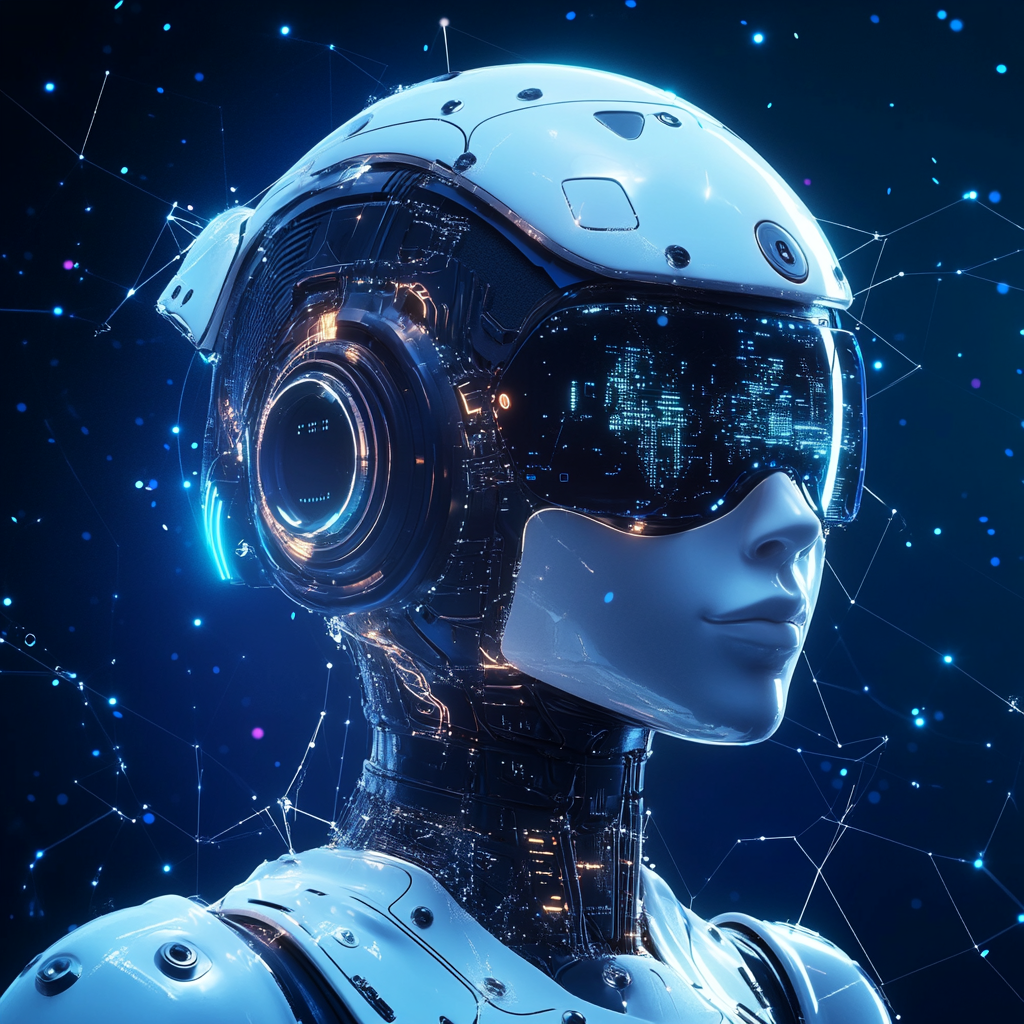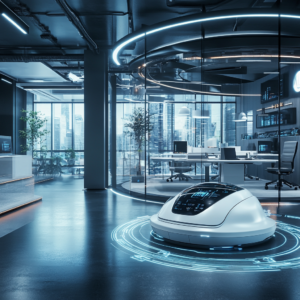
**”How Artificial Intelligence is Transforming the World: Navigating the Future”**
The AI Revolution: Transforming Our World for Better or Worse
Picture this: a world where algorithms are more than just lines of code and where machines do the heavy lifting while we enjoy our coffee. Sounds futuristic, right? Well, buckle up because we’re living in that reality today. Artificial intelligence is not just nibbling away at the edges of our mundane tasks; it’s diving deep into our education systems, revolutionizing healthcare, reshaping finance, and shifting transportation into a new gear. But with great power comes great responsibility—or, at least, a truckload of ethical questions. Let’s explore how AI is morphing our world, complimented by some subjective musings because let’s face it, who doesn’t love a good opinion?
Education: A Smart Classroom for Everyone
Wave goodbye to one-size-fits-all education! AI is here to craft personalized learning experiences in a manner that even the most avant-garde teachers could only dream about. Intelligent tutoring systems (ITS) are like the fairy godmothers of academia, helping students by adapting to their individual learning styles and offering timely feedback. Imagine your kid struggling with fractions, and instead of tears, they get an interactive chat with an AI that explains it like it’s a video game. Now that’s what I call progress![1]
Still, let’s not pretend everything is peachy. Data privacy concerns and algorithmic bias are the murky waters we must navigate in this digital sea. After all, just because AI targets a more effective learning style doesn’t mean it won’t have biases that could skew assessments. It’s like giving everyone a custom diet without checking if they have allergies first! Who wants that kind of sour surprise?[1][4]
Healthcare: The Doctor is In… the Algorithm
In the world of healthcare, AI is literally saving lives. Imagine algorithms that analyze mountains of medical data to flag diseases like early-stage cancer before humans even get nervous about a cough! This is what many people think of when they hear about AI, but there are layers, my friends. Drug discovery processes that used to take decades are being fast-tracked by AI systems that simulate molecules and predict which compounds are most effective[2]. Can we just take a moment to appreciate how astonishing it is that a machine could help find a cure for diseases faster than we can find matching socks every morning?
Nonetheless, we have to face the reality that the convenience of AI-powered healthcare doesn’t come free of challenges. Who has access to all this data? Is it ethically sound that AI can predict and influence treatment plans? Just think about how easily biases could sneak in. When your health is on the line, wouldn’t you rather not gamble with algorithms?[4][5]
Finance: The High Roller’s Best Friend
Welcome to Wall Street—where algorithms trade stocks faster than a human can blink! AI has penetrated the finance sector, and with it, it’s unraveling a double-edged sword. Fraud detection is now instantaneous, credit assessments are more refined, and chatbots are having conversations with customers like they’re old pals. But what does this mean for the good ol’ job market? Will “algorithms taking over” read as “humans being replaced”? Here’s the kicker: upskilling has never been more critical. Today’s bank teller must morph into tomorrow’s tech-savvy wizard if they want to keep their job.[3]
Let’s face it; if you’re not fluent in AI, you might just as well step aside while the bots do the work. But hey, every cloud has a silver lining, right? The same automation that’s taking jobs is also creating new opportunities for those willing to learn. The future might not look too rosy if you ignore it, but embracing the AI wave could lead you to a sunny shore.[2]
Transportation: Buckle Up for the Autonomous Ride
Ah, the autonomous vehicle—science fiction is now a reality! AI is not only changing how we drive but revolutionizing the logistics we rely on. Imagine a world where cars communicate with one another to navigate crowded streets seamlessly. Truly sounds like a dream, right? AI has the potential to reduce accidents and optimize traffic flow, but it’must not cloud our judgment about the ethical ramifications.[4] If an autonomous vehicle makes a life-or-death decision, who’s held accountable? Spoiler alert: the law isn’t exactly clear on this yet. Welcome to the conundrum!
The Law: When Algorithms and Justice Collide
In the legal realm, AI is shaking things up like a magic eight ball. Systems can now draft contracts, predict case outcomes, and sift through endless legal documents with a keystroke. Sounds like a win-win, right? But here’s where it all gets sticky—the old question of trust. Can we really place our legal fates in the hands of algorithms that might be flawed? The sound of an algorithmic verdict could keep many up at night.[4] Transparency, my friends, is key. If we want AI to serve justice like a radiant knight, we need to ensure that its decisions can be audited and understood.
The Dark Side: Navigating Privacy and Bias
Every superhero has a weakness, and AI is no different. While its ability to sift through colossal datasets is impressive, it raises the stakes on privacy. Your browsing habits might not seem personal until you realize they could benefit a third party in ways you never intended. The biggest paradox here is that the same technology designed to make our lives easier could be compromising our privacy in real-time. How’s that for a conundrum?[4]
Bias is another ticking time bomb lurking in the background. If AI learns from a flawed dataset, imagine the implications for hiring, lending, and even criminal justice. Who’s calling the shots when algorithms perpetuate stereotypes? The answer is simple: ethical frameworks that prioritize accountability are non-negotiable if we don’t want AI to become the villain of our story.[1]
The Generative Age: Creativity’s Digital Companion
And just when we thought AI couldn’t astonish us any further, enter generative AI—think of it as the Picasso of algorithms. These systems can create stunning art, write code, and even compose symphonies. That’s wild, isn’t it? But amid the applause and fanfare for generative AI, the quest for Artificial General Intelligence (AGI) remains a hot topic. It’s still a nebulous goal, but the potential consequences of its success—or failure—could define our future.[3]
Should AGI become a reality, will it be our greatest ally in solving colossal global challenges, or will it lead us down a dystopian path? The trajectory depends significantly on how we conduct our research and implement regulations. Let’s aim for responsible innovation instead of spectacles on the ethical tightrope, my friends.
The Road Ahead: Join the Conversation
AI isn’t just a fad; it’s an evolution that’s already at our doorstep. How will you respond to the unfolding revolution? Will you embrace it and become a part of the change, or will you remain a specter of the past? Stay in the loop as we navigate the labyrinth of AI by subscribing to our Telegram channel. For the latest updates on breakthroughs, ethical dilemmas, and everything in between, head over to @ethicadvizor. This is your chance to help shape the future—don’t let it slip away!

